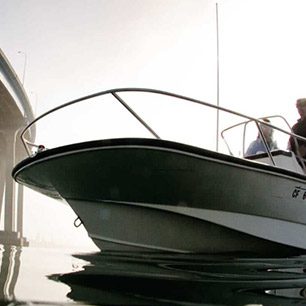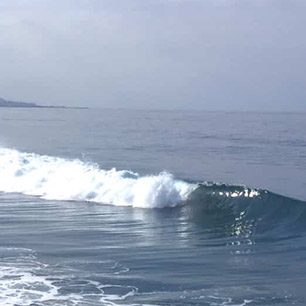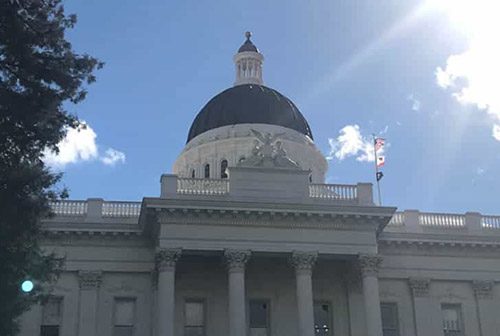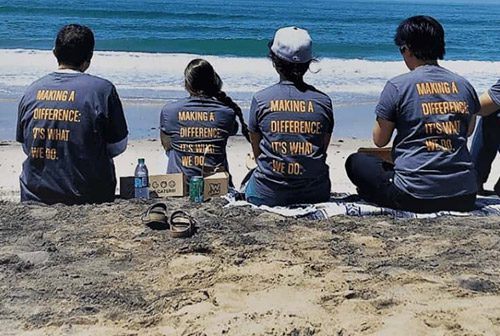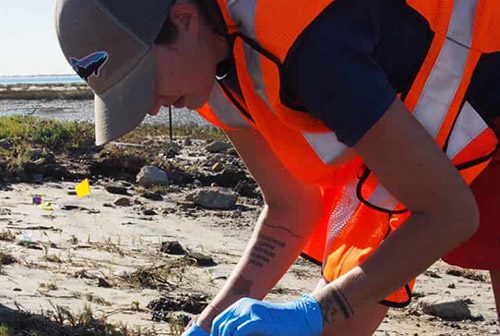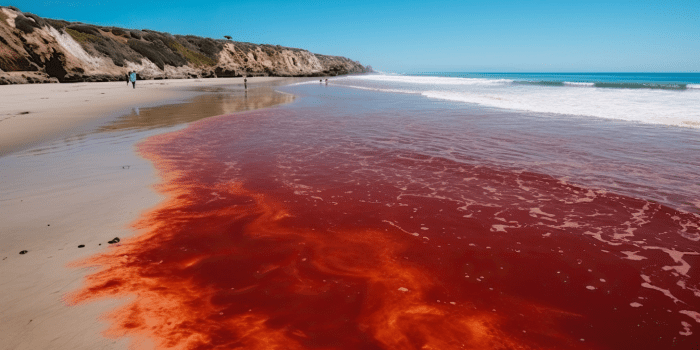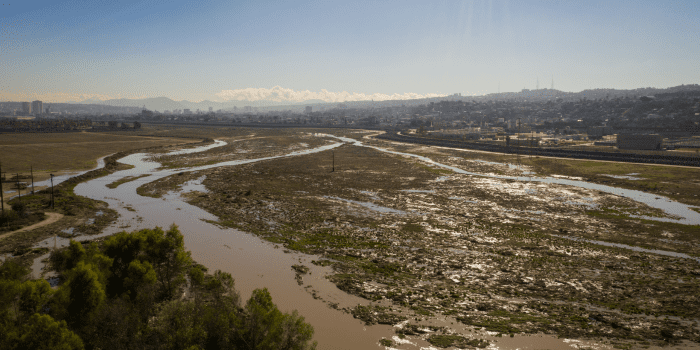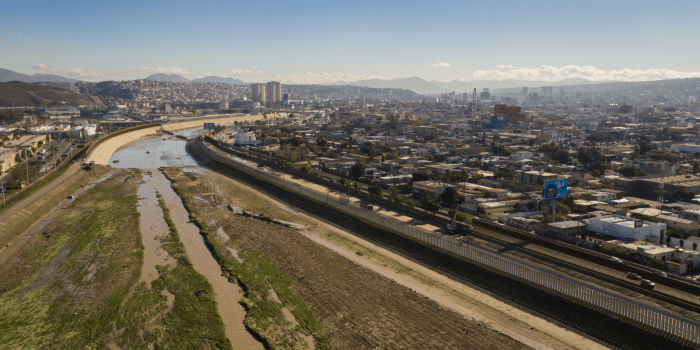Stormwater Infrastructure
Navigate to a specific section below.
Current Status
On March 15, 2022 the Stormwater Department presented its long-term funding strategy recommendations to the entire San Diego City Council. This is a key opportunity for the public to support actions to fund critical infrastructure improvements.
Last updated 3/11/22
Call to Action
We need you to provide public comment and urge the council to prioritize clean, safe water for San Diego. Follow these quick and easy instructions to take part.
history and Background
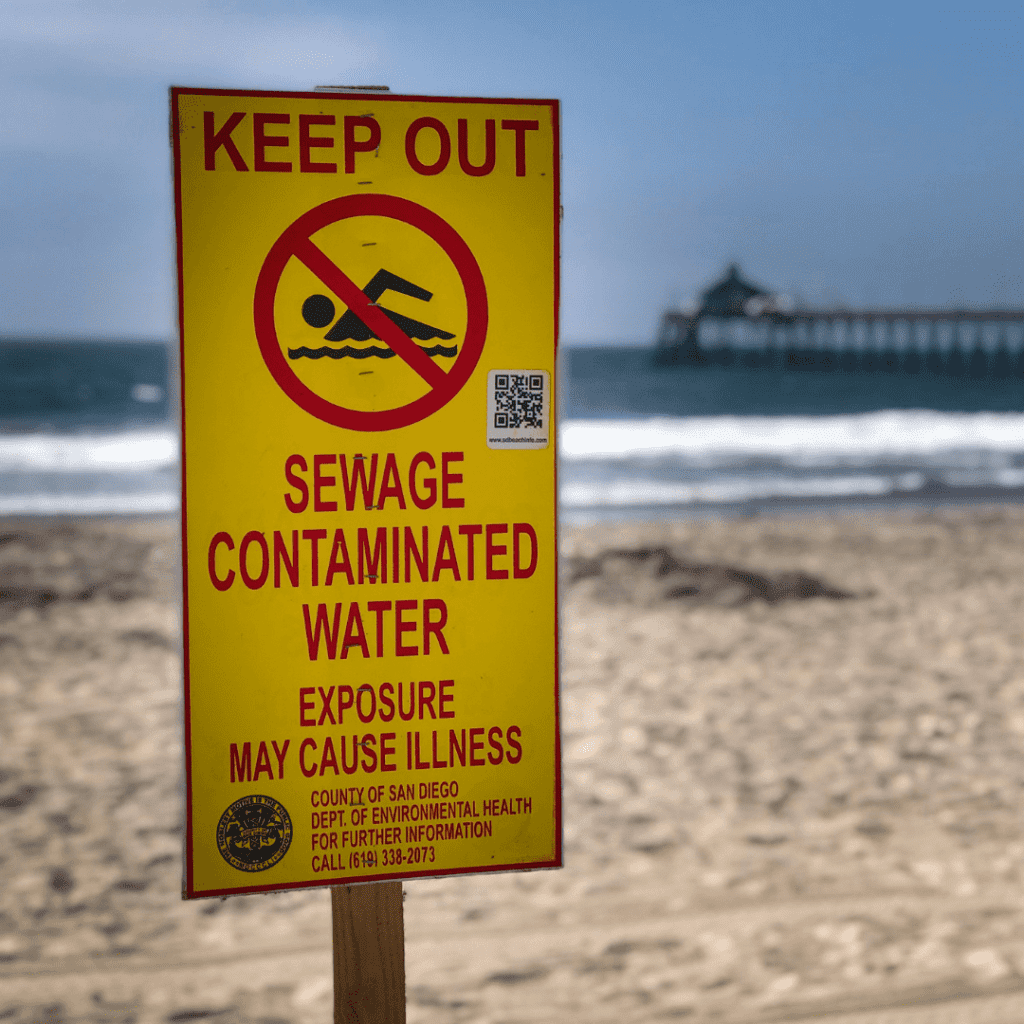

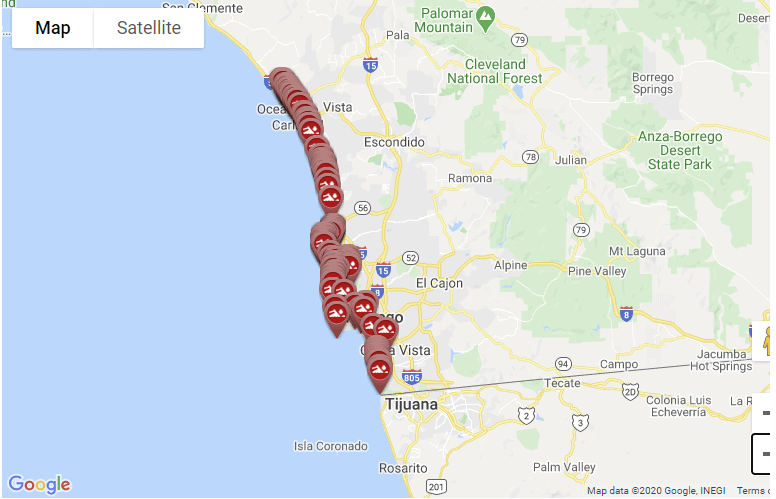

Stormwater Pollution is a Problem
Stormwater pollution is San Diego’s most persistent threat to our coastline and ecosystem. Stormwater, or urban runoff, is the water that falls and flows over a city due to rain, irrigation, or leaks from aging infrastructure. Stormwater moves across hard urban surfaces like roofs, streets, and parking lots. As it travels, stormwater collects trash, bacteria, and toxic pollutants. These pollutants include detergents, fertilizers, pesticides, motor oil, heavy metals, and pet waste. Once stormwater enters storm drains, it moves through a network of underground channels and pipes to outfalls along our coast. Stormwater is not treated. The pollution and trash picked up by stormwater flow into the ocean and onto our beaches.
San Diego’s picturesque beaches are far from pristine. According to the City of San Diego, 73 percent of our rivers and streams are considered contaminated under the federal Clean Water Act. Beaches are one of the region’s key tourist attractions, helping generate over 200,000 jobs directly and indirectly and bringing in an estimated $35 million annually. Beach advisories and closures throughout the county threaten our health and economy and limit San Diegans’ ability to recreate safely.
Photo credits: Beach closure due to sewage spill (Shannon Johnson, Surfrider Foundation San Diego); Screenshot of water quality map (Lucero Sanchez).
Stormwater Pollution is a Public Health and Safety Hazard
Our stormwater system is failing. San Diego’s stormwater infrastructure is outdated, overburdened, and underfunded. Heavy rains often overwhelm the neglected stormwater system and cause pipe failures. Stormwater pipe failures can cause sinkholes, flooding, and property damage. Sewage systems can leak into nearby drinking water pipes, triggering boil water advisories. Piecemeal emergency repairs to our stormwater system are costly, inefficient, and take funding away from other critical projects.
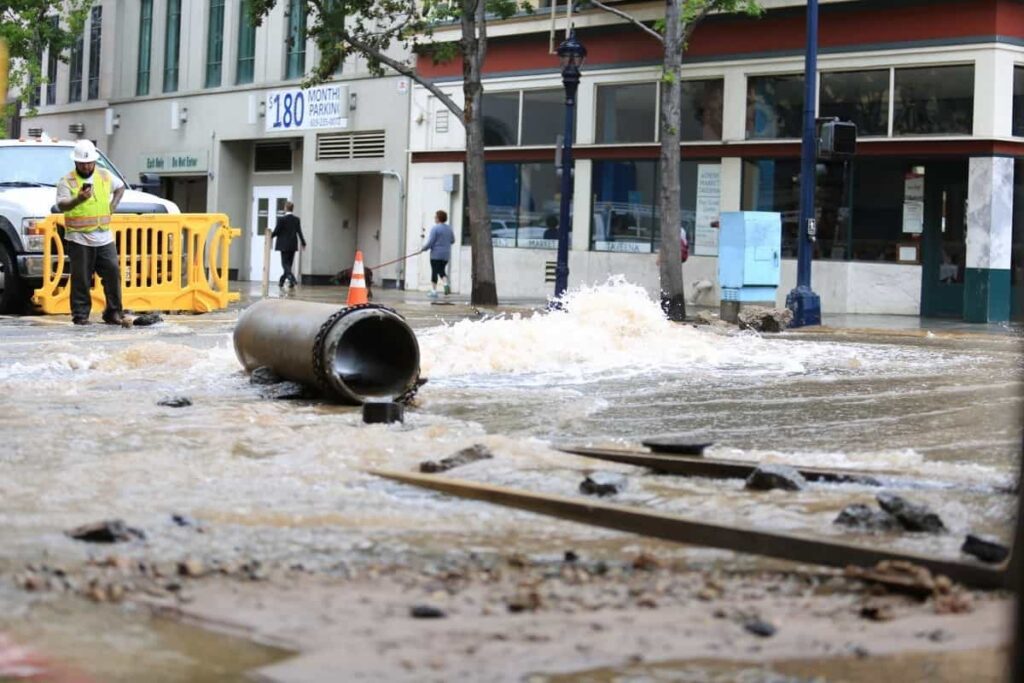

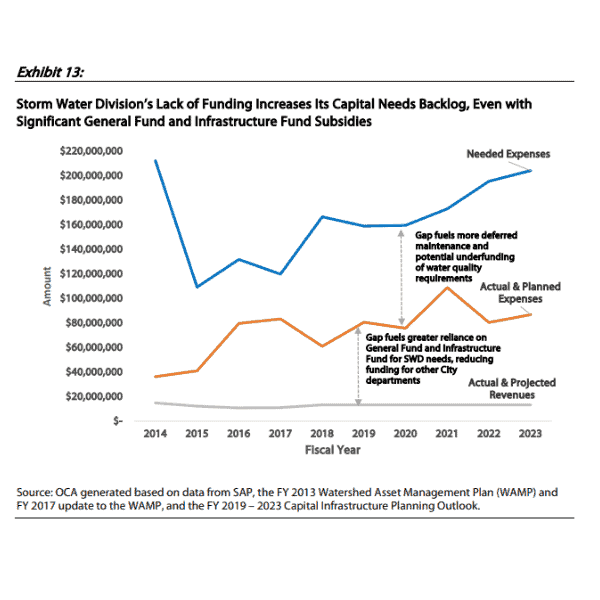

Stormwater Infrastructure is the $1.4 Billion Dollar Elephant in the Room
The City of San Diego Stormwater Department has a budget shortfall of $1.4 billion in outstanding projects.
San Diego currently funds its stormwater infrastructure on an ad hoc basis. Instead of having a dedicated funding source to meet its ongoing stormwater maintenance and repair needs, the City uses General Funds and other non-dedicated sources as they become available. Both the City’s 2014 Independent Budget Analyst Report and a 2018 City Auditor’s Report agree that these sources are grossly insufficient to cover existing stormwater management costs. Current funds would not fund any new stormwater or integrated water management projects, which are crucial elements of improving regional climate resilience, reducing pollution in communities, and protecting San Diego from water scarcity.
For decades, the City lacked the political will to plan for or fund an integrated water management strategy, allowing the gap between critical infrastructure maintenance needs and available funding to widen into the $1.4 billion deficit we see today. San Diego has one of the lowest existing stormwater fees in the state. Current rates show property owners paying less than one dollar a month to cover San Diego’s stormwater budget.
Without a dedicated source of funding to maintain and improve the stormwater system, our infrastructure will continue to fall behind and fail, putting individuals, communities, and property at risk. We need clean, safe water for San Diego and a dedicated stormwater revenue source.
Photo credits: Water main break in Downtown San Diego (Megan Wood/inewsource); Graph from 2018 Performance Audit of Storm Water Division Report (City of San Diego/Office of the City Auditor)
Stormwater Infrastructure Solutions
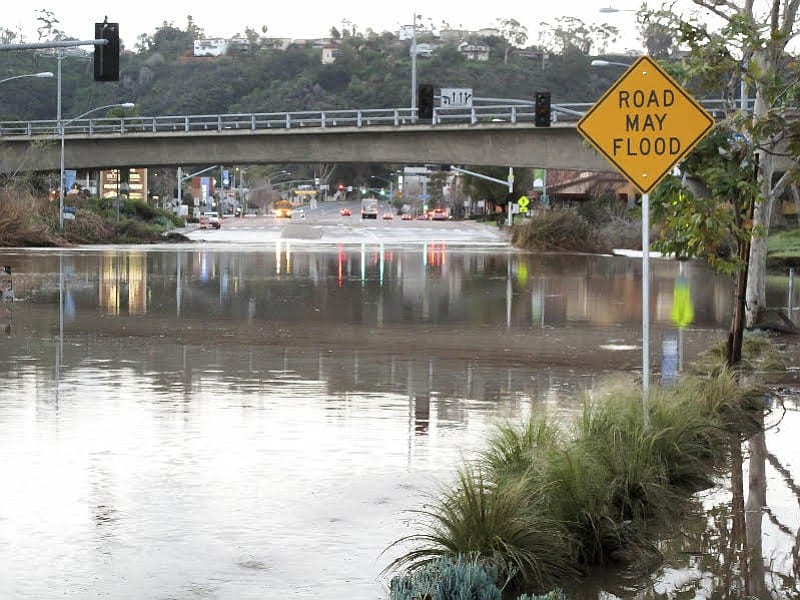

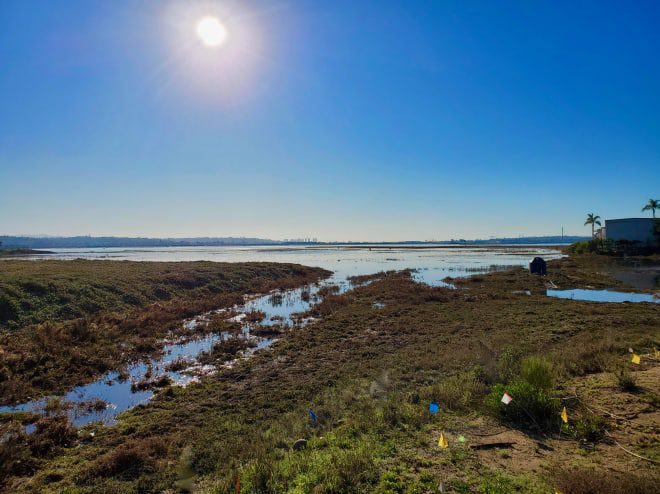

Stormwater Infrastructure Issues are Linked to Climate Change
More stormwater infrastructure funding also means more funding for climate solutions. San Diego faces many environmental challenges that relate to water. As a major city in Southern California with very little annual rainfall, we rely on imported water to meet our freshwater needs. We risk exposure and vulnerability to water shortages on over 85 percent of our supply. Climate change will further stress our region and make available water supply – both local and imported – even less predictable. Long periods of drought and heavy rains will become more common and erratic. Resources, especially water, will frequently become scarce.
In order to meet the challenges of a changing climate, San Diego must quickly curb its energy use while simultaneously increasing our climate resilience. We can do this by adopting an integrated water management approach that utilizes stormwater capture, wastewater recycling, and green infrastructure. A well-funded and holistic approach to water management can increase local water supply, reduce or eliminate pollution, and improve water quality. Green infrastructure projects establish grassy parks and wildlife habitat, promoting psychological and physical well-being in highly urbanized areas.
Clean, safe water for San Diego addresses climate change and puts people first. Ensuring stormwater projects are adequately funded enhances water security, improves water quality, reduces flood risk, mitigates climate change, creates green jobs, beautifies neighborhoods, connects communities, and fulfills legal obligations.
Photo credits: Flooding in Mission Valley (KPBS/Richard Klein); Mission Bay (ReWild Mission Bay).
We Need a Strong and Supported Ballot Measure
There is consensus that a ballot initiative increasing stormwater fees is necessary to success. We need a public vote to raise stormwater fees to a reasonable amount.
L.A. is Already Doing it
Several jurisdictions in California have succeeded in passing similar ballot measures. Los Angeles successfully passed Measure W in 2018. It provides local, dedicated funding for stormwater management and urban runoff. The program will generate up to $285 million per year for critical stormwater projects and green infrastructure.
We Need Clean, Safe Water Now
San Diego needs to address its stormwater funding deficits now. Left unchecked, we risk facing more challenging consequences down the line. Investing and prioritizing stormwater infrastructure will increase water supply, improve water quality, and protect public health.

